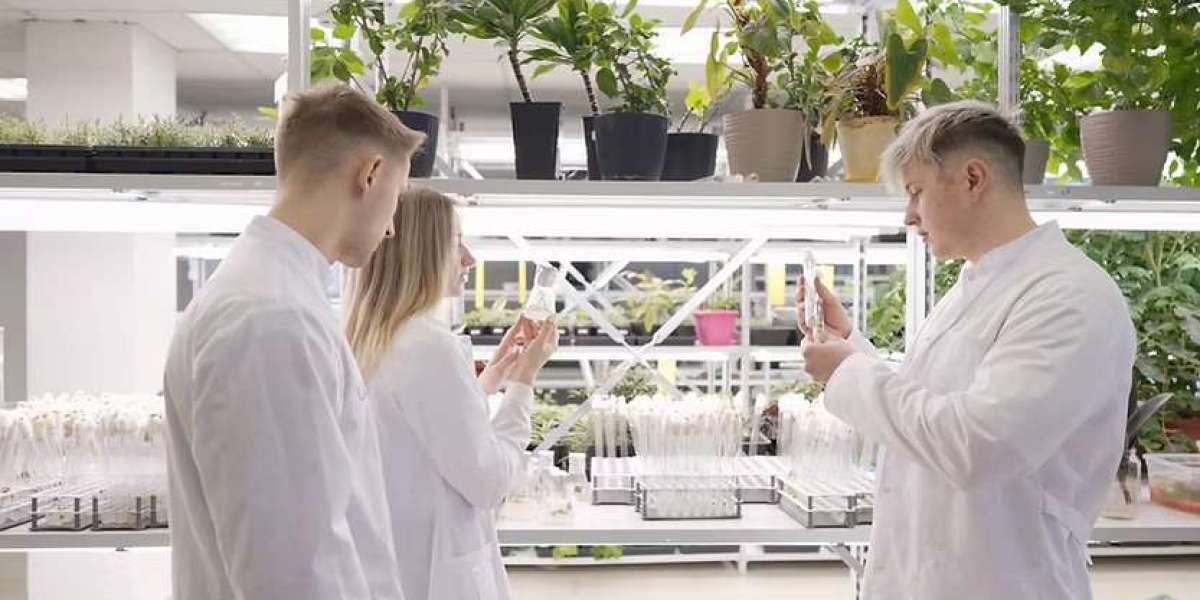Agriculture has always been at the heart of human civilization, providing sustenance, employment, and economic growth. However, modern agricultural practices, particularly the extensive use of chemical fertilizers, have raised concerns about soil health, water contamination, and overall environmental sustainability. Recognizing this challenge, top fertilizer companies are increasingly shifting their focus towards green agriculture, promoting practices that are both productive and environmentally responsible. By integrating eco-friendly solutions and innovative technologies, these companies are driving a transformative change in the agricultural landscape.
The Need for Sustainable Agricultural Practices
Traditional chemical fertilizers have undeniably boosted crop yields and helped meet global food demands. Yet, their excessive use has led to several unintended consequences. Soil degradation, nutrient imbalances, and pollution of nearby water bodies are becoming pressing issues for farmers worldwide. Furthermore, the over-reliance on synthetic chemicals can disrupt the delicate ecosystem of beneficial soil microorganisms, reducing soil fertility over time.
Green agriculture aims to address these challenges by adopting methods that enhance productivity while maintaining ecological balance. This includes the use of organic fertilizers, biofertilizers, crop rotation, and integrated nutrient management. By promoting such practices, leading fertilizer companies are not only contributing to environmental sustainability but also ensuring long-term soil health and farmer profitability.
Innovations Driving Green Agriculture
To support green agriculture, fertilizer companies are investing heavily in research and development. They are exploring innovative solutions that reduce chemical dependency, improve soil fertility naturally, and enhance crop productivity sustainably.
1. Organic Fertilizers
Organic fertilizers, derived from plant and animal residues, provide essential nutrients to crops while improving soil structure. Unlike synthetic fertilizers, they release nutrients slowly, preventing leaching and reducing the risk of environmental contamination. Many top fertilizer companies are now producing organic formulations tailored for specific crops and soil types.
2. Biofertilizers
Biofertilizers are living microorganisms that enrich the soil by fixing nitrogen, solubilizing phosphorus, or promoting plant growth through natural processes. These products represent a key component of sustainable farming practices. By integrating biofertilizers into traditional fertilization programs, farmers can reduce chemical inputs while maintaining or even enhancing crop yields.
3. Slow-Release Fertilizers
Slow-release fertilizers are designed to release nutrients gradually over time, matching the nutrient uptake patterns of plants. This not only improves fertilizer efficiency but also reduces nutrient runoff into water bodies. Such products reflect the commitment of top fertilizer companies to innovation and environmental responsibility.
4. Precision Agriculture Technologies
The use of precision agriculture tools, such as soil sensors, satellite mapping, and automated nutrient management systems, allows farmers to apply fertilizers more efficiently. These technologies minimize waste, reduce costs, and support the adoption of green agricultural practices on a large scale.
Collaborative Efforts with Farmers
Leading fertilizer companies are working closely with farmers to promote sustainable agriculture. Training programs, field demonstrations, and knowledge-sharing initiatives help farmers understand the benefits of eco-friendly practices and how to implement them effectively. By bridging the gap between technology and practical farming, these companies ensure that green agriculture becomes accessible and economically viable for all farmers.
Moreover, many fertilizer providers are partnering with local cooperatives and agricultural institutions to facilitate widespread adoption of sustainable practices. Such collaborative efforts amplify the impact of green initiatives and encourage community-wide participation.
Economic and Environmental Benefits
The shift towards green agriculture offers multiple advantages. Environmentally, it reduces soil degradation, minimizes water pollution, and enhances biodiversity. Economically, farmers can achieve higher long-term yields, reduce dependency on expensive chemical inputs, and improve resilience against climate change. By advocating sustainable farming methods, top fertilizer companies play a pivotal role in fostering a balance between agricultural productivity and environmental stewardship.
Challenges and Opportunities
Despite the growing interest in green agriculture, certain challenges remain. Farmers may be hesitant to switch from conventional fertilizers due to perceived risks or lack of awareness. Initial costs for organic or biofertilizer inputs can also be higher, making adoption slower in some regions.
However, these challenges present opportunities for fertilizer companies to innovate, educate, and provide cost-effective solutions. By offering a range of sustainable products, including organic options and microbial inoculants, they can help farmers transition gradually while maintaining productivity and profitability.
Looking Ahead
The future of agriculture lies in sustainable practices that preserve natural resources while ensuring food security. Top fertilizer companies are at the forefront of this transition, investing in research, promoting eco-friendly products, and educating farmers about the long-term benefits of green agriculture. Their commitment demonstrates that economic growth and environmental responsibility can go hand in hand.
Wrapping Up: Empowering Sustainable Farming with Biofertilizers
As global agricultural demands continue to rise, the role of biofertilizer suppliers becomes increasingly crucial. By providing eco-friendly solutions and fostering awareness among farmers, these suppliers help reduce chemical dependency, improve soil health, and promote sustainable farming practices. The collaboration between innovative fertilizer companies and biofertilizer suppliers is shaping a greener, more resilient future for agriculture, ensuring that productivity and environmental stewardship coexist harmoniously.














